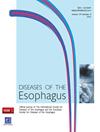西欧食管癌外科治疗组织的差异
IF 2.3
3区 医学
Q3 GASTROENTEROLOGY & HEPATOLOGY
引用次数: 0
摘要
西欧食管癌手术结构和结果存在差异的原因尚不清楚。这项问卷调查研究旨在确定西欧食管癌手术治疗组织方面的差异。我们对西欧的上消化道(GI)外科医生进行了一项横断面国际问卷调查。根据科研成果和欧洲食管疾病学会或(国家间)上消化道委员会的活跃成员资格,每个国家选出一名外科医生。问卷由 51 个结构化问题组成,内容涉及食管癌手术的结构组织、手术培训和临床审核流程。2021 年 10 月至 2022 年 10 月期间,来自 16 个欧洲国家的 16 名外科医生参与了这项研究。有 5 个国家(31%)规定了年食管切除术量阈值,从 10 例到 26 例不等;有 7 个国家(44%)在指定中心集中进行治疗;有 4 个国家(25%)没有集中规定。每个国家进行食管癌手术的中心数量从 4 到 400 不等,即每百万居民有 0.5 到 4.9 个中心。在 4 个国家(25%),食管癌手术是普通外科培训的一部分,8 个国家(50%)报告有上消化道外科奖学金。有 8 个国家(50%)对上消化道手术进行了国家审计。如果有的话,所有国家都使用审计来监控医疗质量。西欧国家在食道癌外科治疗的组织和集中化方面存在很大差异。交流医疗组织方面的经验可进一步提高欧洲食管癌手术治疗的效果。本文章由计算机程序翻译,如有差异,请以英文原文为准。
Western European Variation in the Organization of Esophageal Cancer Surgical Care
Reasons for structural and outcome differences in esophageal cancer surgery in Western Europe remain unclear. This questionnaire study aimed to identify differences in the organization of esophageal cancer surgical care in Western Europe. A cross-sectional international questionnaire study was conducted among upper gastrointestinal (GI) surgeons from Western Europe. One surgeon per country was selected based on scientific output and active membership in the European Society for Diseases of the Esophagus or (inter)national upper GI committee. The questionnaire consisted of 51 structured questions on the structural organization of esophageal cancer surgery, surgical training, and clinical audit processes. Between October 2021 and October 2022, 16 surgeons from 16 European countries participated in this study. In 5 countries (31%), a volume threshold was present ranging from 10 to 26 annual esophagectomies, in 7 (44%) care was centralized in designated centers, and in 4 (25%) no centralizing regulations were present. The number of centers performing esophageal cancer surgery per country differed from 4 to 400, representing 0.5–4.9 centers per million inhabitants. In 4 countries (25%), esophageal cancer surgery was part of general surgical training and 8 (50%) reported the availability of upper GI surgery fellowships. A national audit for upper GI surgery was present in 8 (50%) countries. If available, all countries use the audit to monitor the quality of care. Substantial differences exist in the organization and centralization of esophageal cancer surgical care in Western Europe. The exchange of experience in the organizational aspects of care could further improve the results of esophageal cancer surgical care in Europe.
求助全文
通过发布文献求助,成功后即可免费获取论文全文。
去求助
来源期刊

Diseases of the Esophagus
医学-胃肠肝病学
CiteScore
5.30
自引率
7.70%
发文量
568
审稿时长
6 months
期刊介绍:
Diseases of the Esophagus covers all aspects of the esophagus - etiology, investigation and diagnosis, and both medical and surgical treatment.
 求助内容:
求助内容: 应助结果提醒方式:
应助结果提醒方式:


